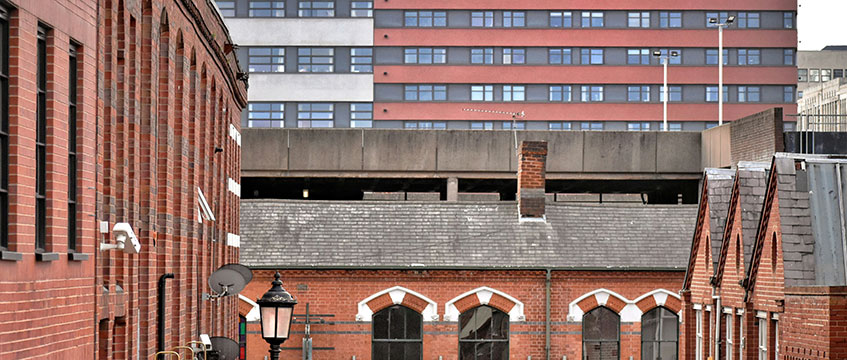The West Midlands office market has an obsolescence problem. As things stand, 83% of office buildings across Birmingham will be unlettable once new requirements come into play in 2030 stipulating that they must be a minimum of EPC grade B. In Coventry and Wolverhampton the figure stands at 100%.
For Siddall Jones founder and director Ed Siddall-Jones, these are sobering statistics, and he is far from convinced that landlords will be able to make the necessary upgrades.
“I think they are aware that they need to spend money, but I don’t think they appreciate just how much money needs to be spent,” says Siddall-Jones. “It’s horrendously expensive to hit the kind of grades that we are going to have to in order to be compliant, certainly by 2030.”
The solution? Ruling out taxpayer subsidies as politically unviable, Siddall-Jones believes another row-back is the only option.
“My hope is that the can gets kicked down the road and that we have a similar situation to the whole combustion engine thing with the government, because I’ll be honest: I don’t think it’s deliverable,” he says. “Landlords are aware and they are prepared to spend money but to what extent, who knows?”
Resi pivot
Siddall-Jones was speaking on a Voice of the Region podcast recorded live at EG’s A Bird’s-Eye View: The Midlands event, held in the Birmingham office of law firm Shoosmiths.
He founded Siddall Jones 12 years ago and now the firm operates across all sectors including property management and stands at the top of the EG Radius rankings for deal numbers across the West Midlands for the past 12 months.
The industrial sector is still the star of the show in the West Midlands, although Siddall-Jones says there is a huge scarcity of stock at the smaller end of the market owing to the cost of land and construction. “There are no good-quality small industrial units,” he says. “Anything up to 20,000 to 25,000 sq ft, there’s nothing, so there’s a huge market for that at the moment.”
He believes that issues around ESG are no longer the preserve of larger corporates. “It has been historically; not any more,” he says. “Most worryingly for us, it’s the smaller companies that are raising finance, and the banks are turning round and saying [the property] has got to be at a certain EPC level or else they’re not prepared to lend. It’s going to have a huge impact on the market.”
Siddall-Jones says an inevitable consequence of the ESG drive will be the loss of commercial space to residential. “I think we are already seeing it,” he says. “We are very active in the Jewellery Quarter and Digbeth, and many office buildings there have been converted to residential because there is a huge capital gain from doing so. I think that will be more and more prevalent as time goes on, particularly on the city fringe.”
On the map
Siddall-Jones worries that the sums involved in making improvements where they are most needed simply do not add up. “Rentals for secondary, 1980s office buildings, for argument’s sake, are extremely competitive,” he says. “I don’t think landlords are going to be able to spend the money and recapture their investment through an increase in rental values at the moment.”
Of course, the West Midlands is far from unique in its office EPC dilemma, and the issue is almost certain to become a political hot potato as we move closer to 2030, with the government having to choose between environmental commitments and the jobs that offices provide, particularly in those secondary cities where lower rents make investment harder to justify.
But there has been another political story closer to home, with voters choosing to replace West Midlands metro mayor Andy Street with Labour’s Richard Parker, who spent 27 years with PwC. Siddall-Jones had been pleased with Street’s tenure, during which he brought the BBC to Digbeth and got work to finally start at the Phoenix 10 employment zone, which had stood derelict by the M6 for more than two decades.
However, speaking a few hours after the polls opened, Siddall-Jones is not opposed to change: “Whoever wins, I just hope they are pro-business and put Birmingham on the map.”
These are two areas in which Siddall-Jones himself could certainly not be accused of lacking application.
Photo © Adam Jones/Unsplash
Send feedback to Jim Larkin
Follow Estates Gazette











